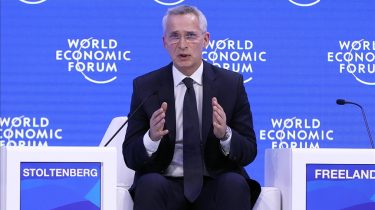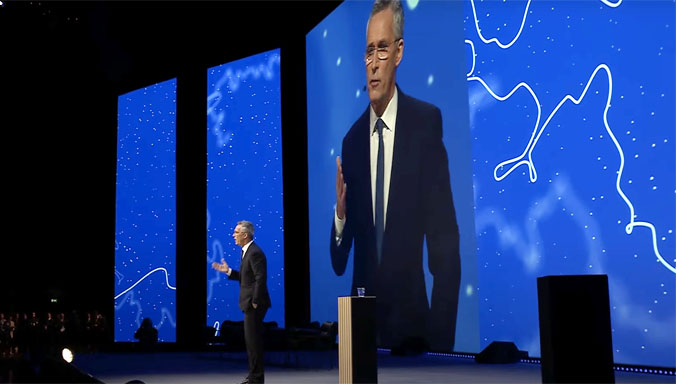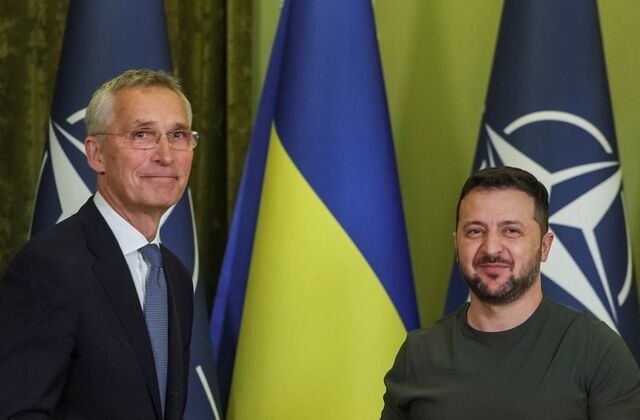Jens Stoltenberg: The path to peace is more weapons for Ukraine

NATO Secretary General Jens Stoltenberg emphasized the importance of continued military support for Ukraine from Western countries. In his opinion, it is this assistance that will be the determining factor in the duration of the conflict between Russia and Ukraine. Stoltenberg also said that at the upcoming NATO summit, which will take place from July 9 to 11, 2024, the issue of Ukraine will be one of the key topics of discussion.
Military support for Ukraine is the key to ending the conflict
Stoltenberg noted the critical importance of continued support for Ukraine. He believes that it is necessary to avoid a repetition of delays in the provision of military assistance, as was the case in early 2024. “Following the full-scale Russian invasion, NATO allies provided unprecedented support to Ukraine, which was vital for Ukrainians to fight back and survive as a sovereign nation. However, this winter and spring we faced serious delays and gaps in assistance, which affected the situation in advance,” he emphasized.
The Secretary General expects the Alliance to decide at the upcoming summit that NATO will take the lead in “coordinating and providing security and training assistance to Ukraine.” He has already proposed the creation of a long-term fund, which will be replenished annually with fresh funding.
“The more reliable our long-term support, the sooner Moscow will understand that it cannot wait for us, and the sooner this war will end. It may seem paradoxical, but the path to peace means more weapons for Ukraine,” Stoltenberg emphasized.
He also noted that assistance to Ukraine is important for US national security. “By allocating a small portion of its defense budget, the United States is helping Ukraine destroy a significant portion of Russia’s offensive capabilities without putting a single American soldier at risk,” Stoltenberg concluded.

Limited assistance from partners: an obstacle facing Ukraine
- During the Peace Summit in Switzerland, Ukrainian President Vladimir Zelensky noted that the country continues to receive support from Western partners. He mentioned recent significant military packages provided by allies.
- However, according to Zelensky, this support is not enough to win. In addition, it often arrives in Ukraine with a delay. For example, there is an approved aid package from the US, Nordic countries and UK, but the main question concerns the timing.
- However, the President noted that the number of participants in the Peace Summit indicates that international support for Ukraine is not decreasing. In addition, recently a significant number of other states have joined in supporting Ukraine.
Peacebuilding: Working Together for Global Stability
Measures to strengthen global security and stability require coordinated efforts and interaction between various countries. In modern conditions, the importance of international cooperation is increasing, and peacebuilding programs are becoming especially important. Such initiatives are aimed at preventing conflicts, rebuilding devastated regions and creating sustainable conditions for development.
Peacebuilding includes various aspects such as diplomacy, humanitarian assistance, economic development and law and order support. International organizations such as the UN and NATO play an important role in this process, providing platforms for dialogue and coordination of efforts between different countries. Particular attention is paid to protecting human rights, ensuring access to education and healthcare, and stimulating economic activity.

One of the key elements of peacebuilding is the involvement of local communities in decision-making processes. This allows us to take into account the unique needs and characteristics of each region, which contributes to more efficient and sustainable development. It is important that local people have the opportunity to participate in the recovery and development of their communities, which increases their responsibility and stake in long-term peace.
Moreover, peacebuilding requires a long-term approach and constant monitoring. It is necessary not only to respond to current crises, but also to anticipate possible threats in the future. This requires flexibility and a willingness to adapt strategies and approaches to changing conditions. Close cooperation between governments, international organizations, NGOs and the private sector is key to ensuring sustainable peace and security at the global level.
